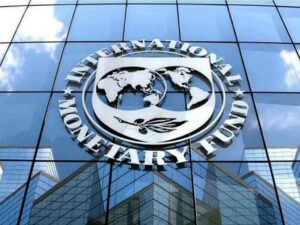


Adelabu woos investors to make additional investments to fast-track energy transition targets
…Says Development banks have leveraged over $1bn in renewable energy
By Matthew Denis, Abuja
In a bid to enhance electricity supply and distribution across the country, the Minister of Power, Adebayo Adelabu has wooed investors to make additional investments to grow Nigeria’s energy sector and achieve the targets for the nation’s energy transition targets.
Speaking at the ongoing significant Nigeria Oil and Gas Conference in Abuja, the Minister noted that Nigeria continues to embark on an extraordinary journey towards net zero carbon emissions, it is crucial to ensure that a more just, affordable, and sustainable energy system is adopted to address the industry’s most pressing challenges and unlock limitless potential in achieving energy security and a secure, sustainable, and equitable energy transition for Nigeria.
He stressed that “the power sector in Nigeria consumes the largest share of the country’s domestic gas supply. I am here to advocate for increased investment in Nigeria’s gas development to unlock the full potential of our power sector and achieve the Nigeria Energy Transition Plan.”
“The domestic gas-power market accounts for 60 percent (approx. 700 MMSCF Daily) of the total domestic gas supply. This gas quantity currently sustains Nigeria’s 4GW average grid generation capacity.
“In line with the Nigeria Energy Transition Plan vision 30:30, which seeks to achieve 30GW by the year 2030, our energy mix is projected to be 70% (or 21GW) thermal source (most likely gas considering the country’s gas potential) and 30% (or 9GW) renewable source.
“The power sector would require over five times what the industry currently utilises from the domestic gas market to achieve our 70% thermal energy target with gas-powered generation.
“Additional investments would be needed to increase the country’s gas production to achieve this level of gas supply to the power sector without compromising the export obligations. To this end, I call on the investors here today to strongly consider the investment in the further development of gas production in the country, especially our abundant unexploited Non-Associated Gas reserves,” he advocated.
Speaking further, Adelabu enumerated the Government’s commitment to ensure liquidity in the Nigerian power sector.
“To briefly spotlight the Federal Government of Nigeria’s recognition of the need for adequate liquidity in the Nigerian power sector to catalyse the much-needed investments across the value chain.
“The government recently introduced a cost-reflective tariff for the sector’s most served grid-tied customer segment. In addition, presidential approval was granted to resolve the power sector obligations to defray legacy debts to generation and gas companies.
“These actions speak to the government’s commitment to allowing efficient gas supply for the Nigerian power sector and ensuring there’s a clear line of sight for investors to recoup their investments in the country. I am confident that the Federal Government of Nigeria is committed to ensuring a viable and bankable power sector, and we are convinced that the industry is investment-ready,” he explained.
“To achieve our 30 percent Renewable Energy target, I urge you to consider the significant benefits of investing in renewable energy projects in Nigeria. Our country boasts abundant resources, particularly solar, wind, and hydro energy, providing a remarkable opportunity for sustainable growth. The renewable energy market has grown tremendously in the last decade, with over $1 billion leveraged by Multilateral Development Banks,” the Minister added.
He further emphasised that by channelling investments into these renewable sources, we can effectively meet our carbon emission targets while playing a crucial role in combating climate change.
“As demonstrated by our recently completed $550 million Nigeria Electrification Project, investing in renewable energy helps reduce carbon emissions, enhance energy security, and support economic development.
“Additionally, to complement the NEP, the $750 million DARES project would provide electricity to 2.5 million people in Nigeria by deploying solar home systems and mini-grids. These investments will propel Nigeria toward achieving its desired energy mix and transition targets.
“I reaffirm our unwavering commitment to achieving net zero emissions by 2060. I sincerely thank all participants and stakeholders for your continued support and collaboration. Together, we can chart Nigeria’s course toward sustainable energy security and robust economic development,” he said.



